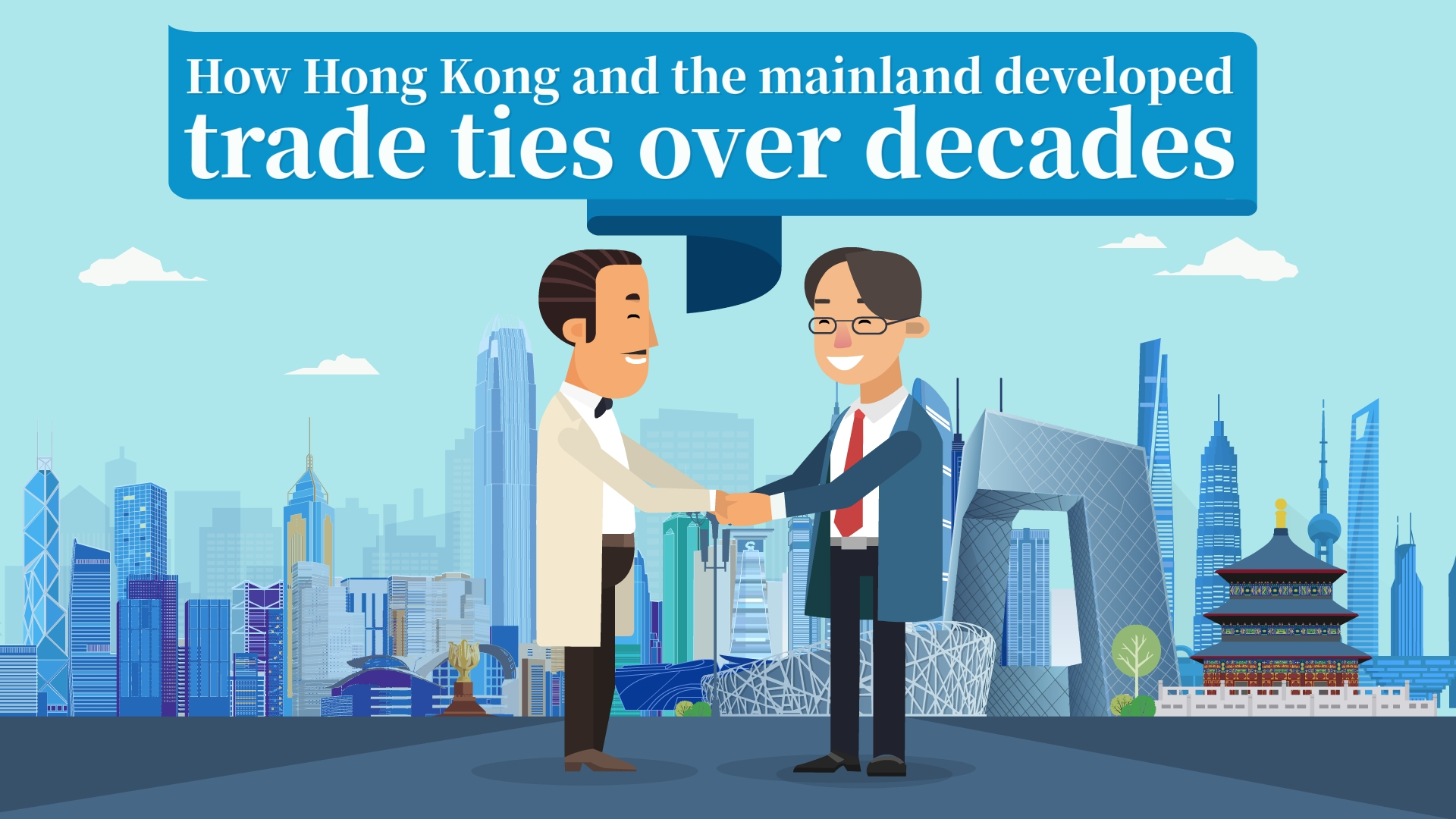04:01

Hong Kong is famous for its modernization. As an international financial hub, free, efficient and high-developed are often words to describe the city's economy.
After it returned to China in 1997, Hong Kong has kept its international financial, shipping, and trade position in the world.
Trade exchanges between Hong Kong and the Chinese mainland have emerged since the very beginning of the mainland's reform and opening-up.
Trade cooperation over the past decades
The Chinese mainland has overtaken the United States as Hong Kong's largest trading partner since 1985 thanks to the rapid development of trade exchanges.
Since 1993, as Tsingtao Brewery became the first mainland company to be listed in Hong Kong, many state-owned enterprises sped up their IPO process in the city. The Hong Kong stock market not only raises funds, but also provides opportunities of standardized management and capital operation.
It also has an important role in promoting the establishment of modern enterprise systems and improving the corporate governance structure of the listed state-owned enterprises.
In 1997, when Hong Kong returned to China, "One Country, Two Systems" principle was implemented and ensured the city's high degree of autonomy.
Unfortunately, the Asian financial crisis broke out just one day after Hong Kong's return. George Soros, a financial tycoon who had swept across Southeast Asia, targeted Hong Kong currency and stocks for giant gains.
In October of that year, international speculators crashed the city's financial market. Hong Kong stocks then plummeted, taking its hardest blow in history.
At this tense moment, China's central government pledged support, vowing to "maintain Hong Kong's prosperity at all costs," thus giving the Hong Kong Special Administrative Region (SAR) government strong confidence to fight back.
On August 28, 1998, after trading started, the Hong Kong SAR Government bought everything, regardless of the number of sell-offs, and finally won the Hong Kong financial defense war.
After its return, Hong Kong did not need to pay taxes to the central government, bringing the development of economic and trade cooperation to a higher and wider level.
In 2003, Hong Kong and the mainland signed CEPA (the Mainland and Hong Kong Closer Economic Partnership Arrangement), which has made trade freer.
In 2008, when the global financial crisis broke out, the central government adopted 14 measures to ensure Hong Kong's economic and financial stability.
From 2014 to 2016, Shanghai-Hong Kong Stock Connect and Shenzhen-Hong Kong Stock Connect were successively established, enabling investors from both sides to buy and sell stocks with each other.
The mainland and Hong Kong signed the Agreement Concerning Amendment to the CEPA Agreement on Trade in Services on November 21, adding opening measures in many important service areas. Experts say this agreement will draw closer cooperation between Hong Kong and mainland and promote the development of the Guangdong-Hong Kong-Macao Greater Bay Area.
The economic and trade exchanges between Hong Kong and the mainland have been unceasing for a long time. They are interdependent and have made great contributions to each other's economic development.